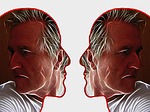About Aphasia
People with aphasia find it difficult to speak, read, write or understand.
Aphasia affects communication not intelligence.
Around 367,000 people who have survived a stroke in the UK have aphasia.
The Stroke Association outlines who can help a person who has suffered a storke. There are a range of health professionals that can help with the longer-term problems caused by stroke.
-
A physiotherapist can help tackle weakness or paralysis. They help stroke survivors to regain mobility and muscle control (for example by helping them learn to balance or move around again).
-
An orthotist can also help with muscle function by supporting limbs with braces.
-
An occupational therapist helps people do the day-to-day activities that can be difficult to do after a stroke, such as washing, dressing and eating. They also help people return to their normal leisure activities and support them as they learn skills so that they can return to work.
-
A speech and language therapist tackles the damage done to communication skills, so that stroke survivors are more able to speak, read write and understand. They also help with swallowing problems that may occur as a result of stroke.
-
A dietitian assesses dietary requirements and can provide advice on eating a healthy diet, especially when people have weight problems or have diabetes. A healthy diet is important for reducing the risk of strokes in the future. A dietitian may also be able to advise alternative feeding methods such as by a naso-gastric tube (NG) or gastrostomy tube (PEG).
-
If a stroke has affected a person’s eyesight, an ophthalmologist or optician can recommend aids such as glasses or an eye patch.
-
A clinical psychologist or psychiatrist can help with problems to do with processing information, such as recognising people. They can also help people deal with the emotional difficulties caused by stroke, but this can also be the role of a community psychiatric nurse.
-
A podiatrist will help with foot problems that have been caused by paralysis or lack of movement.
-
A continence nurse can help with any bowel and bladder problems.
If you have had a stroke and are in hospital you will usually see these health professionals there. If you are at home, your GP can refer you to these services. You may also be able to contact them yourself.
The Stroke Association’s publications:
Communication problems after stroke
Continence problems after stroke
Emotional changes after stroke
Occupational therapy after stroke
Speech and language therapy after stroke
Useful organisations:
Association of Speech and Language Therapists in Independent Practice
Royal College of Speech and Language Therapists
British Association and College of Occupational Therapists
Occupational Therapists in Independent Practice
Chartered Society of Physiotherapy
The British Psychological Society
For more information go to http://www.stroke.org.uk
Written by Rachel Harrison on behalf of Integrated Treatment Services.
Speech and Language Therapist,










